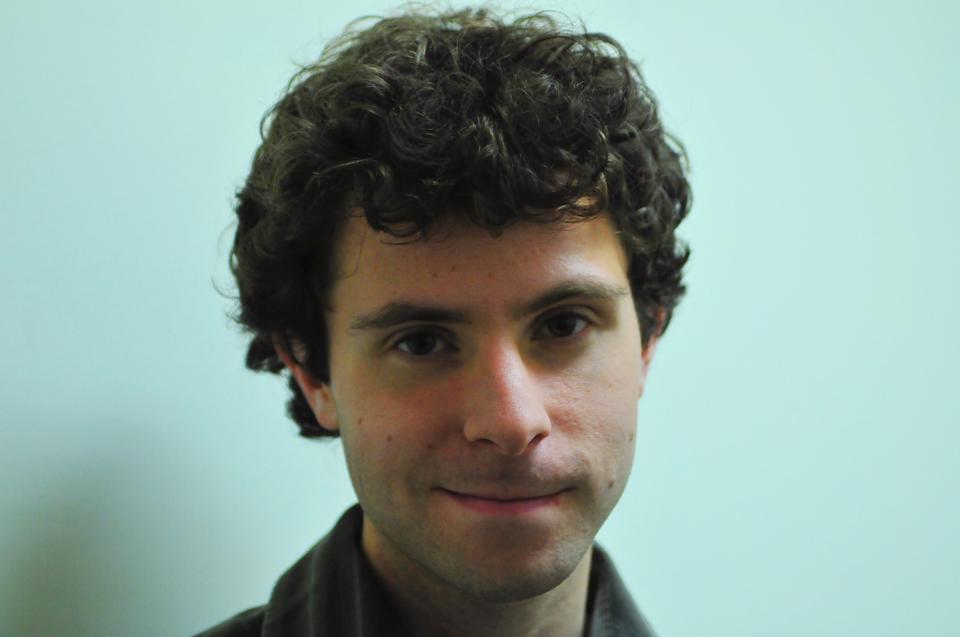
News
Cambridge Residents Slam Council Proposal to Delay Bike Lane Construction

News
‘Gender-Affirming Slay Fest’: Harvard College QSA Hosts Annual Queer Prom

News
‘Not Being Nerds’: Harvard Students Dance to Tinashe at Yardfest

News
Wrongful Death Trial Against CAMHS Employee Over 2015 Student Suicide To Begin Tuesday

News
Cornel West, Harvard Affiliates Call for University to Divest from ‘Israeli Apartheid’ at Rally
Portrait of an Artist: Matthew A. Aucoin ’12
Musician, composer, and poet Matthew A. Aucoin ’12 discusses intersecting art forms and his newest opera

Matthew A. Aucoin ’12 wrote his first opera before he was a teenager. The 2012 recipient of the Louis Sudler Prize in the Arts, an award given by the advisory board of the Office for the Arts at Harvard to the senior who demonstrates the most overall “artistic talent and achievement,” Aucoin has since had his operas staged at Harvard and in New York. On Friday, he will see the premiere of his newest opera—“Hart Crane,” about the poet of the same name—for which he wrote both the score and the libretto.
Aucoin, an English concentrator in Kirkland House, writes poetry and conducts in addition to composing. He is the music director of the Dunster House Opera and assistant conductor of the Harvard-Radcliffe Orchestra. His poetry has been published in the campus literary magazines the Harvard Advocate and the Gamut.
The Harvard Crimson: What drew you to opera?
Matthew A. Aucoin: I caught the “opera bug” almost so long ago that I can’t remember—I was about seven or eight. I had already been playing piano, and I was already writing stories for fun, so it seemed like the most natural fusion of the two arts that I already loved. I think that, from the start, the possibilities of opera seemed limitless; it seemed like it was a broader canvas, a fuller canvas, to create a world on than any other form of art that I could think of.
THC: What about Hart Crane struck you as good material for an opera?
MAA: Pretty much everything.… I find him incredibly compelling as a figure. He was an openly gay poet in the 1920s who fled from his home in Ohio at about 16 to create this life for himself. He committed suicide at 32, and the saddest thing is that we don’t have all the great poems he would have written. Most poets are not anywhere near mature by the time they’re 32. He certainly wasn’t, so he’s a great example of lost potential. I met with a great literary critic who’s a big fan of Crane, and when I told him I was writing an opera about him, he said, “My dear boy, Crane is already an opera—you don’t need to do that.”
THC: Do you find Crane’s work especially musical?
MAA: In a way, all poetry treats language as riding a musical line—not as pure music, but following music…. But for Crane, the music comes first.… The way that he constructs images is to evoke the experience of seeing [an image] rather than the image itself. So instead of saying that there are masts in Brooklyn Harbor, he says something like “gongs in white surplices,” which is a really hard image to see until you imagine that the sail is seen through a haze, which is like a gong sound expanding towards you.… After a while, it makes a certain kind of sense.
THC: What inspired you to branch out from playing music to composing and conducting?
MAA: Actually, it was the other way around. I composed first. I originally wanted to learn piano just so I could compose on something. I always played piano pretty seriously.… After a few lucky encounters with some really great mentors, it seemed like conducting was a natural way to bring together all the things that I already loved to do.
THC: Has your experience in each art form enhanced your work with the others?
MAA: I find that the alternation between contemplative activity and the physical activity of performing is a self-energizing alternation. I find that I do both things better in a given day if I balance the time that I spend between them. Last summer, when I was at the Spoleto Festival in Italy, I would have every morning to explore the Umbrian countryside and just write, think, and compose for five hours every day. And by about lunchtime, I was ready for a break, and that break ended up being conducting and coaching. It uses a totally different region of the brain to do the same activity, which is making music.
THC: In both poetry and music, do you write for yourself, or do you write for others?
MAA: I think I write because it’s a physical need, first of all. When you begin a poem or a piece, you begin it because you feel like something really wants to be born, and you realize that you’re never going to understand what that thing is until it’s made physical. And as for things that I write about, recently…my poems often deal with music, explicitly or implicitly. I think I want to explore in language what the experience of music is.
THC: So for you, music and poetry are very intertwined?
MAA: Yeah—I think that the experience of writing a poem is a musical experience, and I think that learning a score has a lot to do with reading a poem really deeply.
Want to keep up with breaking news? Subscribe to our email newsletter.
